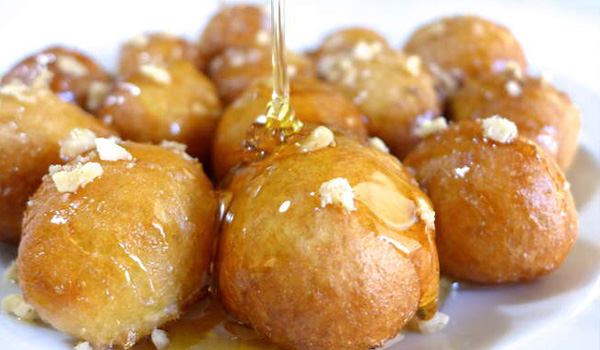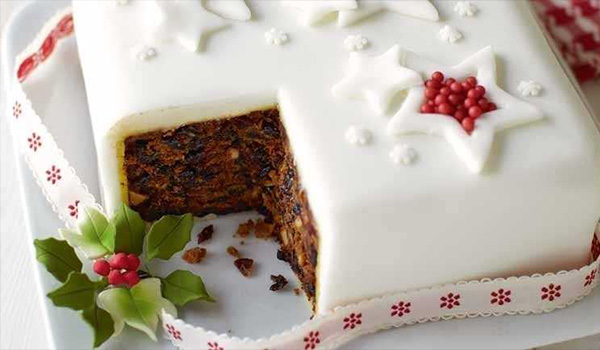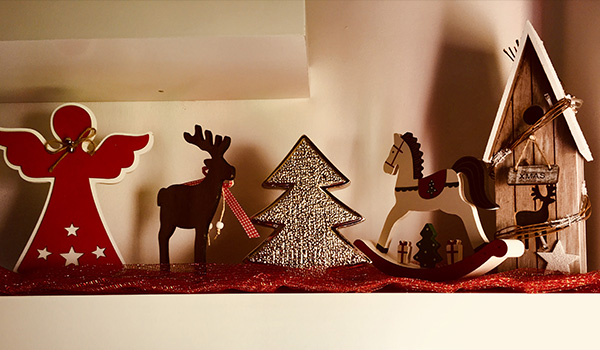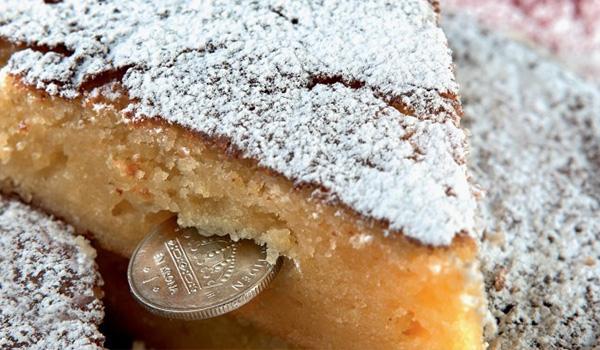Hello December! The month of celebrating, happiness, joy, gifts, family gatherings, excessive food and candy! This is the month when we celebrate the birth of the Light, light a candle and feel at peace with the world. Ask any child and I bet they’d tell you their favorite holiday is Christmas. And why wouldn’t it be? Children are shrewd, you know. They do recognize a good deal when they get one: lots of presents to savagely rip the wrappings off; unlimited and justifiable, for that matter, consumption of sweets and candy.
Although Christmas is for everyone, despite gender, age or even religious affiliations, the euphoria and thrill revealed by the innocence children lavishly ooze, makes the holidays all about the little ones. Being a doting mum of three girls, I decided to dedicate this month’s blog to the young ones and specifically to their universally sweet teeth.
In Cyprus, both public and private schools close for a period of 2 weeks during the Christmas, New Year and Epiphany Day celebrations. This time is deemed to be a family holiday, meaning that it is usually celebrated within a narrow circle among kinfolk.

Christmas Cake
One of the key meals on the table is Christmas cake. It was brought here by the British in the 19th century. However, it essentially tastes quite different from the original due to the usage of local ingredients. The Christmas cake is usually prepared ahead of time, since certain layers require several days to reach their right state. The fruits for the dough should be preserved in thick syrup for 3-4 days. Usually a variety of fruits is used, such as cherries, oranges, bitter oranges, bergamot or citrus. The dough has to soak in a few spoons of brandy for a few days, and the marzipan decorations require a pair of skillful hands in order to look presentable on the top of the cake.
If you ever happen to visit a Cypriot family during the Christmas season, this cake will, in all likelihood, be one the first things offered to you.
Vasilopita
On the first day of the year, Cypriot families gather together once again, and following the ingestion of a prolific meal, the highlight at dessert is the apportioning of a delicious sponge cake, called Vasilopita or Saint Basil's Pie. St. Basil constitutes the equivalent of Santa Claus, by the way, in the Greek Orthodox tradition. This fragrant, homemade pastry is usually flavored with local oranges and brandy. Customarily, the words "New Year" or the actual number of the year is marked on the top of the cake, usually with peeled almonds or white cream.
What’s important to note is the ritual accompanying the sharing of Vasilopita. First of all, the head of the family blesses the cake and cuts it into pieces. The first three slices are set aside in honor of the Christ, the family’s Home and the Poor fellow man. Next, pieces are served up to one's family and guests, starting with the head of the family, his spouse, and then following a descending age order. Tradition has it, that not only everyone is blessed with a beneficial and blissful year but there’s a certain someone who’s bound to be bestowed with exceptional luck during the current year. And that someone is the one who gets to find a silver or gold coin (cast inside the cake in its making) in the piece of Vasilopita offered to him or her.

Loukoumades
Some delicious pastries cannot be eaten without sticky fingers. Loukoumades are truly a great example of this rule. The name of these sweet doughnuts is derived from the Arabic word "luqma" which means morsel or mouthful. They can be found in various cuisines, but each is differentiated by specific regional ingredients. Cypriot Loukoumades are middle-sized doughnuts soaked in honey syrup. They are pretty similar to the Greek pastry, but the special feature which makes the dough feel and taste differently is mashed potato.
Loukoumades are very popular at Cypriot festivals and fairs, but in addition, according to a pre-Christian tradition, they should be prepared before the Epiphany Day, which is on January 6th. The story goes that malicious spirits, called "Kalinkantzari" which are short, dark and hairy creatures, with long arms and a tail, could be exorcized for the whole year only on Epiphany Day and with the assistance of honey-soaked doughnuts. Consequently, families who stick to traditional norms, cook Loukoumades and stick them on their houses’ roofs in order to appease the nasty spirits and send them back to the bowels of the earth where they reside.



